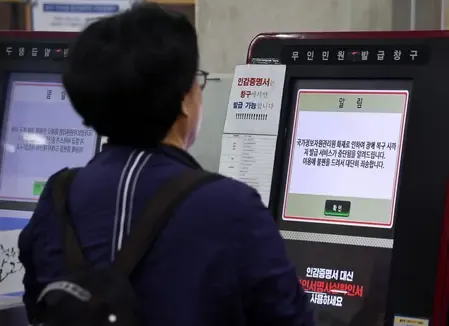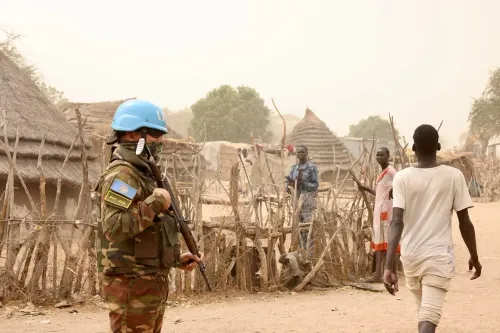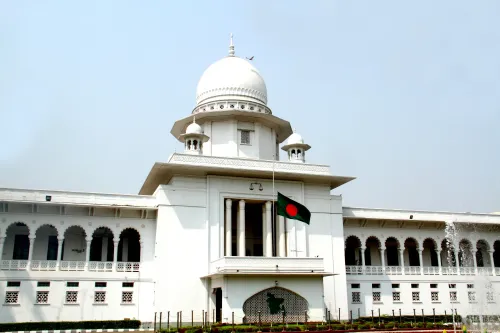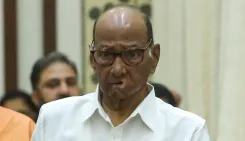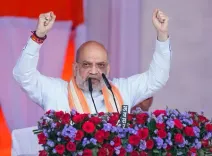Should SCO Members Condemn the Pahalgam Terror Attack?
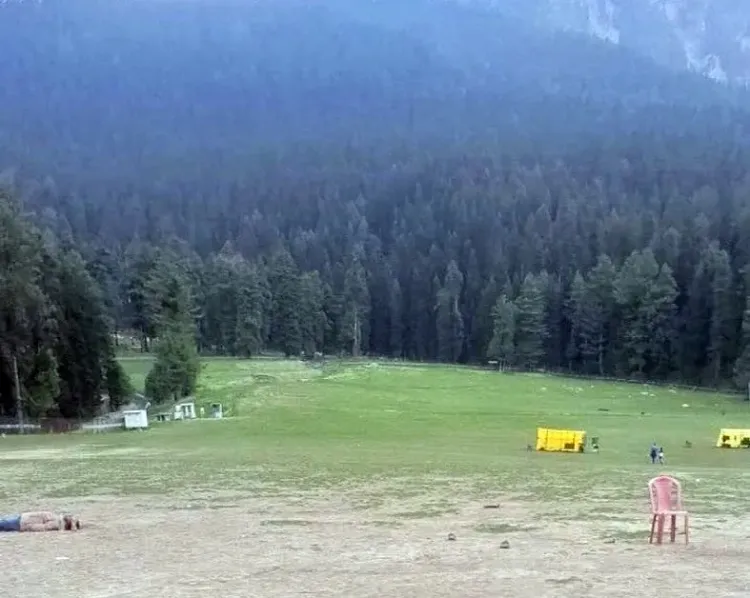
Synopsis
Key Takeaways
- Defence Minister Singh urges SCO members to condemn terrorism.
- The Pahalgam attack reflects a wider issue of cross-border terrorism.
- India's 'Operation Sindoor' aims to combat terrorist infrastructure.
- Radicalization and extremism are critical challenges in the region.
- Collective action against terrorism is essential for global safety.
Qingdao (China), June 26 (NationPress) Defence Minister Rajnath Singh urged the Shanghai Cooperation Organisation (SCO) members to categorically denounce the heinous Pahalgam terror attack that took place in India's Jammu and Kashmir (J&K), reiterating that any form of terrorism is "criminal and unjustifiable."
During his speech at the SCO Defence Ministers' meeting held in Qingdao, China, Defence Minister Singh reflected on the tragic events of April 22, when 26 tourists lost their lives due to an attack by 'The Resistance Front', a faction of the Pakistan-based UN-designated terrorist group, Lashkar-e-Taiba.
He pointed out that the method of this attack was similar to previous assaults carried out by LeT in India.
"In exercising our right to defend against terrorism and prevent further cross-border terrorist activities, India successfully initiated 'Operation Sindoor' on May 7, 2025, aimed at dismantling terrorist infrastructure across borders," he stated.
Singh emphasized the importance of holding accountable the individuals responsible for planning, funding, and sponsoring such abhorrent acts of terrorism, including cross-border terrorism. "Acts of terrorism are criminal and unjustifiable, irrespective of their motivations, and must be condemned in every instance, by anyone, anywhere," he asserted.
"SCO members must denounce this evil unequivocally," he added.
He called for a united and decisive response to combat terrorism and the proliferation of Weapons of Mass Destruction (WMDs) in the hands of non-State actors and terrorist organizations.
Singh highlighted that peace and prosperity cannot coexist with terrorism, pointing to radicalization, extremism, and a growing trust deficit as significant challenges in the region.
"The primary issues we face in our region are tied to peace, security, and a lack of trust. The root of these challenges stems from increasing radicalization, extremism, and terrorism," he remarked.
He stressed, "Peace and prosperity cannot coexist with terrorism and the spread of WMDs among non-State actors and terror groups," emphasizing that only a collective and determined stance can guarantee safety and security for all.
Singh remarked that it is crucial for those who sponsor and utilize terrorism for their selfish agendas to face the consequences.
He warned that nations employing cross-border terrorism as a state policy must be held accountable.
"Certain countries leverage cross-border terrorism as a policy tool and provide sanctuary for terrorists. Such double standards have no place in our discourse. The SCO should not hesitate to criticize these nations," he declared.
Reiterating India's commitment to a zero-tolerance approach towards terrorism, he stated, "India's zero tolerance for terrorism is evident through our actions. This includes our right to defend ourselves against terrorism. We have made it clear that the epicenters of terrorism are no longer safe, and we will not hesitate to target them."
Highlighting the necessity for global efforts to prevent the radicalization of youth, Singh noted that the SCO's Regional Anti-Terrorist Structure (RATS) has been pivotal in coordinating counter-radicalization strategies.
He added that the joint statement issued during India's chairmanship of the SCO Council of Heads of State, focusing on 'Countering Radicalization leading to Terrorism, Separatism and Extremism,' reflects the organization's collective commitment.
Singh urged member states to take action against the misuse of modern technology by terrorists, particularly the use of drones for smuggling weapons and narcotics.
"In our interconnected world, traditional borders are no longer the sole barriers against threats. We face a complex web of challenges from transnational terrorism, cyber-attacks, and hybrid warfare," he articulated.
"These threats disregard national boundaries, calling for a unified response grounded in transparency, mutual trust, and collaboration."
The Defence Minister underscored the significance of multilateralism, stating India's belief in dialogue and cooperation as essential to preventing conflicts.
"India is convinced that reformed multilateralism can foster cooperation to avert conflicts between nations by establishing mechanisms for dialogue and collaboration. No single country, regardless of its size and power, can navigate these challenges alone," he emphasized, invoking the ancient Indian philosophy of 'Sarve Jana Sukhino Bhavantu (May all people be happy).'
He reaffirmed India's ongoing support for peace and stability in Afghanistan.
"Our immediate priorities in Afghanistan include supplying humanitarian aid to the Afghan populace and addressing Afghanistan's developmental needs. As the largest regional development partner of Afghanistan, India continues to implement capacity-building projects for its people," Defence Minister Singh concluded.
He ended with a call for enhanced cooperation among SCO members, asserting that India advocates for "greater collaboration and mutual trust among SCO members. Collectively, we should strive to meet the aspirations and expectations of our citizens while tackling contemporary challenges. We must work in unison to strengthen stability and security in our neighborhood."

